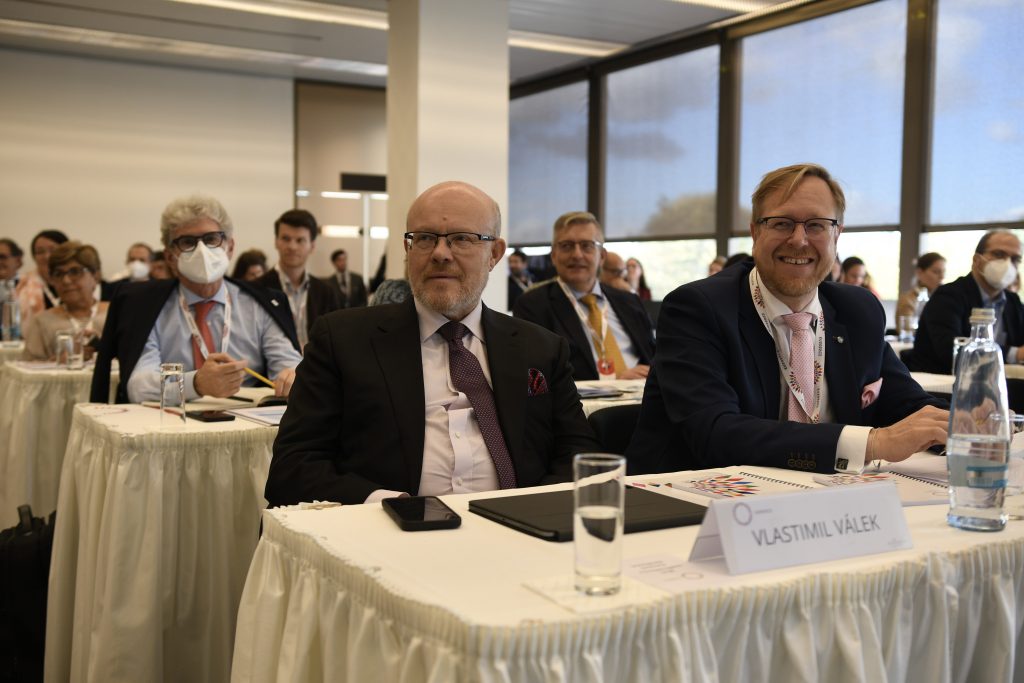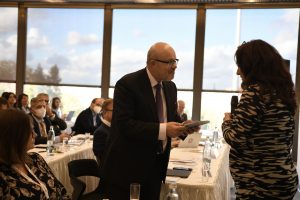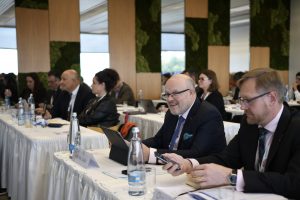Interview with Vlastimil Válek, Czech Health Minister, on a European Action Plan for Rare Diseases
December 2022
On the occasion of the Expert Conference on Rare Diseases, organised in Prague on 25-26 October by the Czech EU Presidency, Czech Health Minister, Vlastimil Válek, gave an exclusive interview to EURORDIS on what a European action plan on rare diseases represents for his home country and Europe at large.
“Without networks, without close cooperation between European countries, and without this action plan, rare disease standardisation and evidence-based treatments are impossible.”
Vlastimil Válek, speaking to EURORDIS
EURORDIS and our members have been calling for a goals-based European action plan since it emerged as the main recommendation of the Rare 2030 study in 2021. The Czech Presidency of the EU – which comes to an end in December 2022 – has made great strides in fostering a consensus on the need for such an action plan.
In this interview, Mr Válek discusses the need for – and his efforts to bring about – greater European cooperation on rare diseases across a variety of policy areas, from expanding newborn screening to making treatments more accessible.
Why has the Czech Republic pushed for this Call to Action?
It’s a philosophy, not a question. The answer is simple and clear – because rare diseases are an extremely important part of medicine.
I know very well what it means because I am an interventional radiologist and I treat patients with rare diseases. There are issues. The cooperation between centres is far from clear-cut. There is no standardisation, there is no common strategy for cooperation in Europe. Fund availability also differs from one European country to another. All of this is the reason why we support the action plan and why it is a priority for our presidency.
Also, as a doctor, I want to see this action plan in reality as soon as possible. It is as simple as that.
What are the most salient issues that this action should address?
There are many reasons to have this action plan in place, one of which is early diagnosis. Newborn screening is extremely important as the majority of these diseases are genetic disorders. We, therefore, need to build networks of laboratories, where we perform this early diagnosis.
Additionally, considering that people move between different European countries – for work, travelling etc – it is necessary that cooperation on this early genetic diagnosis goes beyond national borders.



Last but not least, how do you think this plan would foster the development of rare disease treatments?
Rare disease treatments are expensive. So, if we have one strategy in Europe, and we support and nurture this strategy, treatments would become cheaper and more widely available. And this is the first step towards the personalisation of medicines. But personalisation doesn’t mean “non-standard quality” or a treatment based on personal experience. It is still an evidence-based treatment.
Without networks, without close cooperation between European countries, and without this action plan, rare disease standardisation and evidence-based treatments are impossible.
—-
Vlastimil Válek is a Czech radiologist and politician, serving as Deputy Prime Minister and Minister of Health since 17 December 2021.
